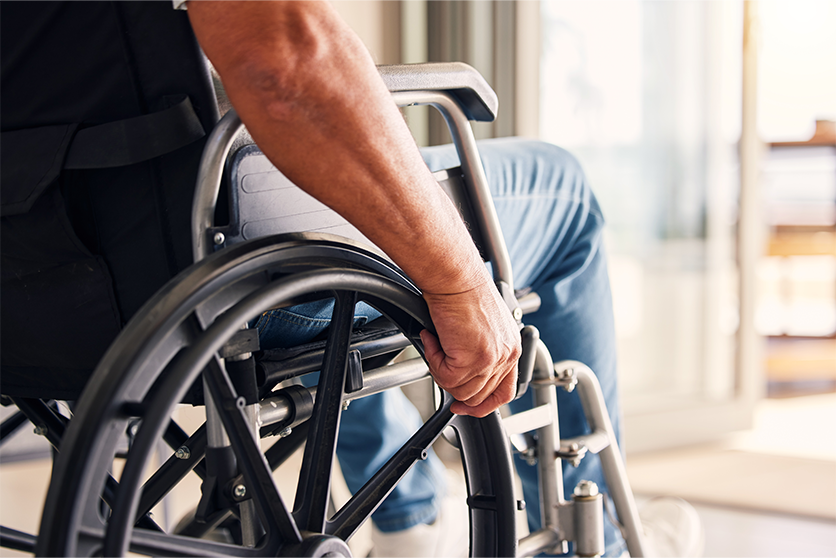
Workplace injuries can be life-changing, and one of the most devastating consequences an individual can face is paralysis, specifically paraplegia. Paraplegia is when a person loses the ability to voluntarily move the lower parts of their body, often resulting from severe spinal cord injuries. There are many challenges faced by those who suffer from paraplegia due to a workplace injury, including their legal rights, and the recovery process.
The Emotional and Physical Toll of Paraplegia
Paraplegia is not just a physical disability; it also comes with a significant emotional toll. According to the University of Pittsburgh Medical Center, the sudden loss of mobility and independence can lead to feelings of despair, depression, and anxiety. Coping with the emotional aftermath of a workplace injury can be as challenging as the physical recovery process.
Physical rehabilitation is a crucial component of adapting to life with paraplegia. It involves learning to use a wheelchair, gaining upper body strength, and developing new skills to perform daily tasks. Occupational and physical therapists play a vital role in helping individuals regain as much independence as possible.
Your Legal Rights
If you have suffered paraplegia due to a workplace injury, it’s essential to understand your legal rights. In most cases, workers’ compensation insurance covers workplace injuries, providing financial support for medical expenses, lost wages, and rehabilitation.
However, navigating the legal process can be complex, and insurance companies may attempt to minimize their financial liability. If you are dealing with a complex workplace injury, it is crucial to ask a knowledgeable personal injury lawyer to help you.
- Determine liability: Establishing who is responsible for your workplace injury is crucial. It may be your employer, a coworker, a manufacturer of faulty equipment, or a combination of factors. Identifying the liable parties is essential for pursuing the appropriate compensation.
- Evaluate damages: Paraplegia results in extensive medical expenses, long-term care costs, lost wages, and pain and suffering. An experienced attorney can help assess the full extent of your damages so you receive fair compensation.
- Negotiate with insurance companies: Insurance companies may offer settlements that do not adequately cover your future needs. A lawyer can negotiate on your behalf to secure a more favorable settlement or take your case to court if necessary.
- Ensure you meet deadlines: Workers’ compensation claims have strict deadlines. Missing these deadlines can jeopardize your right to compensation. A personal injury attorney will help you meet all necessary timelines.
- Protect your rights: Insurance adjusters may pressure you into accepting a settlement quickly. A lawyer can protect your rights and help you make informed decisions about your case.
Rehabilitation and Adaptive Living
Recovering from paraplegia is a lifelong journey, often requiring significant adjustments to your daily life. Rehabilitation is a critical aspect of this process. To help you regain independence and improve your quality of life, rehabilitation includes physical therapy, occupational therapy, and psychological support.
Adaptive living makes your home and surroundings more accessible. Examples of adaptive living include modifications such as ramps, wider doorways, accessible bathrooms, and assistive devices to perform daily tasks. These changes promote your independence and comfort.
Support Systems
Building a solid support system is crucial when facing the challenges of paraplegia. Seek emotional support from family, friends, and support groups for individuals with spinal cord injuries. During your recovery journey, support systems offer guidance, encouragement, and community.
Financial and Legal Support
In addition to emotional support, you may require financial and legal assistance. A personal injury attorney can help secure the compensation you need to cover medical bills, lost wages, and future expenses related to your condition. They can also assist you in accessing disability benefits and other financial resources.
Embracing a New Life
While paraplegia presents significant challenges, many individuals with spinal cord injuries lead fulfilling lives. Embracing a new way of life may include pursuing new hobbies, developing new skills, and setting new goals. It’s important to remember that your injury does not define who you are. Instead, you define yourself by your determination and resilience.
Conclusion
Suffering paraplegia due to a workplace injury is a life-altering experience with physical and emotional challenges. Recovery includes understanding your legal rights, seeking support, and focusing on rehabilitation and adaptation. With the help of a dedicated personal injury lawyer and a strong support system, you can rebuild your life and achieve a fulfilling future despite the obstacles you face.
To schedule a free consultation, call us at 317-566-9600 (Indianapolis), 765-865-9300 (Bloomington), or 812-566-2600 (Kokomo), or complete our online inquiry form to schedule an appointment* with one of our health professional attorneys to review your case. If you were harmed through medical treatments or neglect, we hope to hear from you. We have offices in Indianapolis, Kokomo, and Bloomington to serve you.